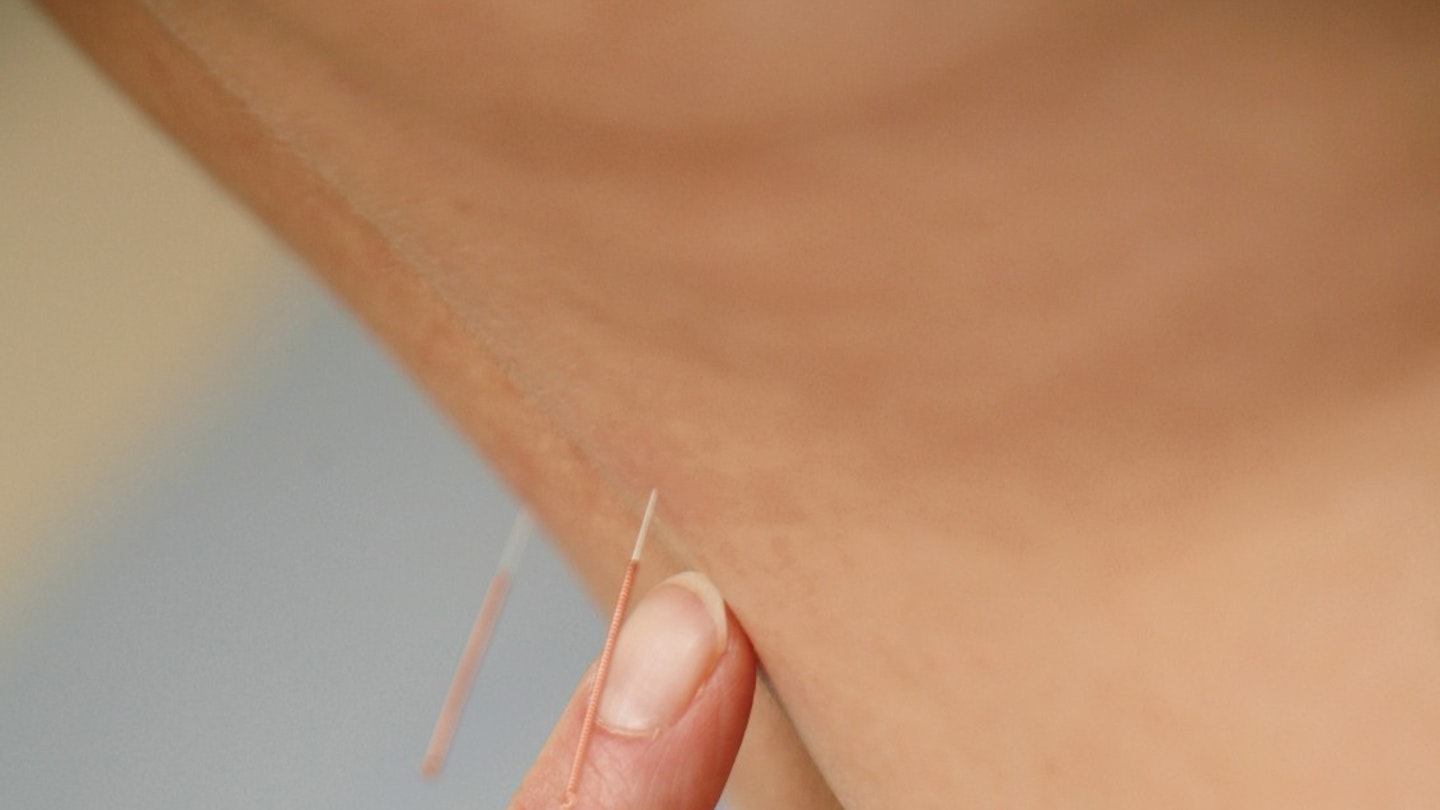Forget epidurals – a technique like acupuncture could be the key to comfort during pregnancy and birth
Most of us think needles when we hear the word ‘acupuncture’ and, yep, that is a part of it. But the idea behind it – balancing the energy in your body – can be a massive help to mums-to-be while they’re waiting for or actually having their babies.
Understand what it’s about, and whether it could be a welcome addition to your birth plan.
How acupuncture works
It’s a Chinese therapy based on the idea that your body is full of energy channels that connects certain points. It basically uses small needles to target these areas.
READ: WHY COCONUT OIL IS AMAZING IF YOU'RE PREGNANT OR A NEW MUM
‘If your health is compromised or there’s a change – like pregnancy – this can alter how the points and channels flow, so they perhaps become blocked, weak or overly active,’ says Denise Tiran, educational director of Expectancy, which trains health professionals about complementary therapies in pregnancy and childbirth. ‘Acupuncture works to balance this, calming or stimulating the energy.’
Helping in the run up to labour
Acupuncture has been credited with easing anxiety, sickness, back pain, tiredness and discomfort during pregnancy, as well as helping with relaxation.
‘If your health is compromised or there’s a change – like pregnancy – this can alter how the points and channels flow, so they perhaps become blocked, weak or overly active’
‘There’s also evidence it can encourage contractions if you’re overdue, and some practitioners do labour-prep courses to balance your energy and help get your body working efficiently,’ says Denise. ‘I’d advise waiting until you’re 37 or 38 weeks pregnantbefore doing any birth-focussed acupuncture though, in case it stimulates labour.’
READ: NESTING CHECKLIST AND WHAT YOU NEED TO GET READY FOR YOUR NEW ARRIVAL
If you have high-risk pregnancy, cardiac problems or epilepsy, speak to your GP or midwife before trying a complementary therapy.
Acupuncture on the big day
During early labour, having acupuncture on areas including your lower back can help with pain relief.
While a few hospital units provide the therapy as a service, it’s not widely available on the NHS at the moment. You may have more luck seeing a practitioner privately (it varies, but individual treatments range from around £40 to £75) especially if you want someone to be with you when you’re about to have your baby.
READ: TAKE OUR QUIZ! WHICH PAIN RELIEF IS RIGHT FOR YOU?
‘Let your team know if you’d like any other professional – acupuncturist or otherwise – to come in with you,’ says Denise. ‘It’s just sensible so everyone is prepared, and you can find out if the hospital has any regulations or guidelines.’
Preparing your birth partner
If you don’t actually have acupuncture in labour, you can still benefit from the techniques.
‘What’s important are the energy points,’ says Denise. ‘Someone trained in acupuncture can show your birth partner how to stimulate these in the best way with their thumbs. This is known as acupressure, and is also a great option if you don’t like needles.’
Have you tried acupuncture? Let us know what you thought on the comments board below.
